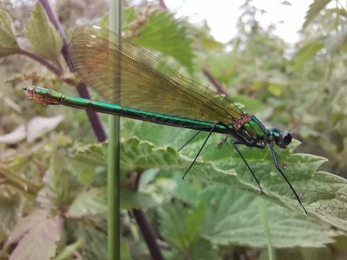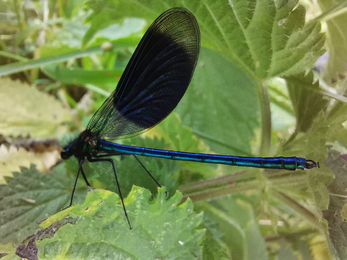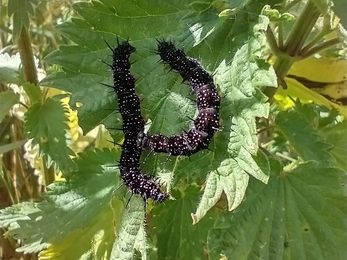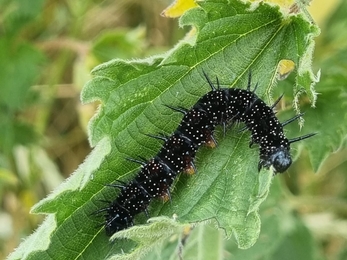Weekly wild news from our reserves - 24 June 2022
Biting stonecrop at Lackford Lakes - Joe Bell-Tye
Visitor Officer and entomologist Hawk Honey was thrilled to find this ‘little dark bee’ or Stelis breviuscula at Lackford Lakes. This rare bee is doing very well at Lackford and has expanded its population since first being discovered there in 2014. This species was first recorded in West Sussex in 1984 and has been gradually moving north. The little dark bee is a cleptoparasite of the large-headed resin bee (Heriades truncorum), which itself is a Red Data Book 3 species (rare and declining).
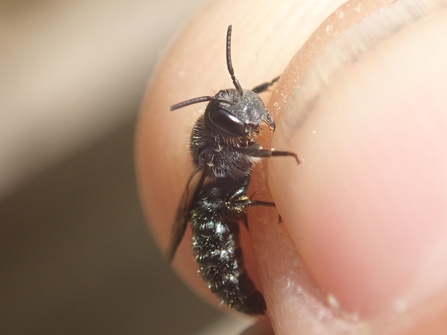
Little dark bee (Stelis breviuscula) at Lackford Lakes - Hawk Honey
Fuzzy barn owls
Gorgeous fuzzy recently fledged barn owls seen at Darsham Marshes this week, many thanks to Chris Stuttle for his charming photo.
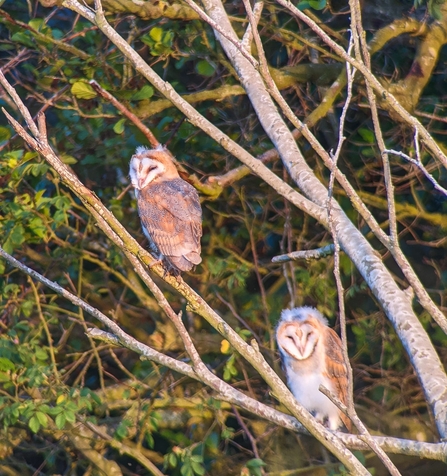
Barn owl fledglings - Chris Stuttle
Broody water rail
This pair of water rail at Carlton Marshes already have two chicks but seem to be preparing for the next generation!
Banded demoiselles
Warden Jessica snapped these lovely female (green) and male (blue) banded demoiselle at Sizewell Belts recently.
Snape in summer
A wonderful place to visit at this time of year, this week Snape Marshes has fantastic displays of southern marsh orchids, as well as lapwing and redshank chicks, barn owl, marsh harrier and purring turtle doves.
Fencing rewards
Back in April our North East Reserves Team collaborated with RSPB and Natural England to erect temporary fencing along Dunwich Beach at Dingle Marshes. The rope exclusion fence is designed to deter people from entering the sensitive nesting areas on the beach, to protect ground nesting ringed plover and other birds.
The team were delighted to record nine fledged ringed plover during beach watch at Dingle Marshes this week. The lack of disturbance also benefits vegetated shingle, with lovely displays of yellow-horned poppy, sea campion, sea kale and sea pea. These great results are due to a combination of the exclusion fencing and regular beach patrols by our wonderful volunteers.
Lackford buzzards
Site Manager Will filmed these buzzards soaring and calling above Lackford Lakes.
Wind pump wets the landscape
The wind pump at Oulton Marshes has been working wonders and turning some relatively featureless marshes into complex wetland which has already filled with hunting dragonflies. The installation of the windpump is the culmination of work the Trust has been undertaking to create a wetlands habitat on Oulton Marshes, with shallow pools and channels and this wind-powered pump to autonomously supply it with water from the adjacent dyke. This habitat work was made possible by most generous grants from the Swire Charitable Trust, Anglian Water Flourishing Environments fund, Geoffrey Watling Charity and Alfred Williams Charitable Trust and a very kind donation from Michael and Penny Thomas.
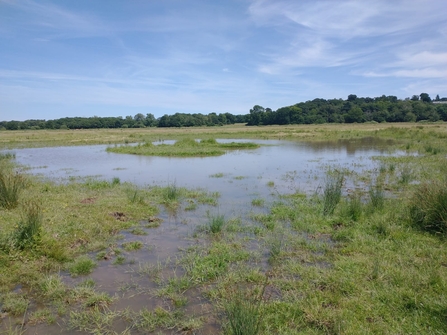
Wind pump results – Lewis Yates
Rewilding site visit
Our North East Suffolk team visited Somerleyton Estate this week to learn about their farming practices and rewilding arable land back to nature. It was also a perfect opportunity for another ‘album cover’ team shot!
Marsh harrier chicks
The Carlton Marshes wardens helped our local expert to locate and ring the first marsh harrier chicks of the year this week.
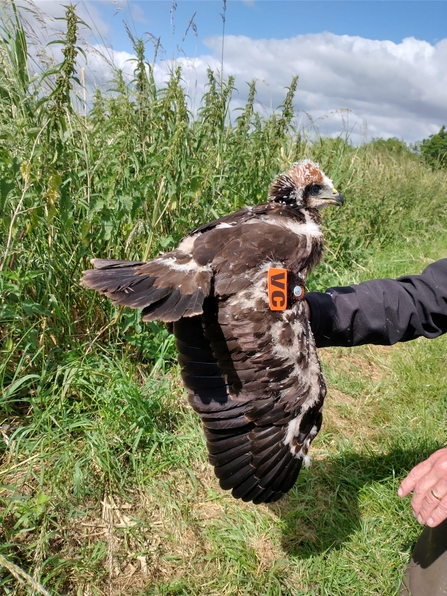
Marsh harrier with tag – Lewis Yates
Glossy caterpillars
These beautifully glossy caterpillars are peacock butterflies in the making.
Swifts soaring
The sky was full of swifts over the new part of Market Weston Fen this week.
Wonderful wildflowers
There are flowers galore across our reserves, here is a selection of this week’s wonders.


